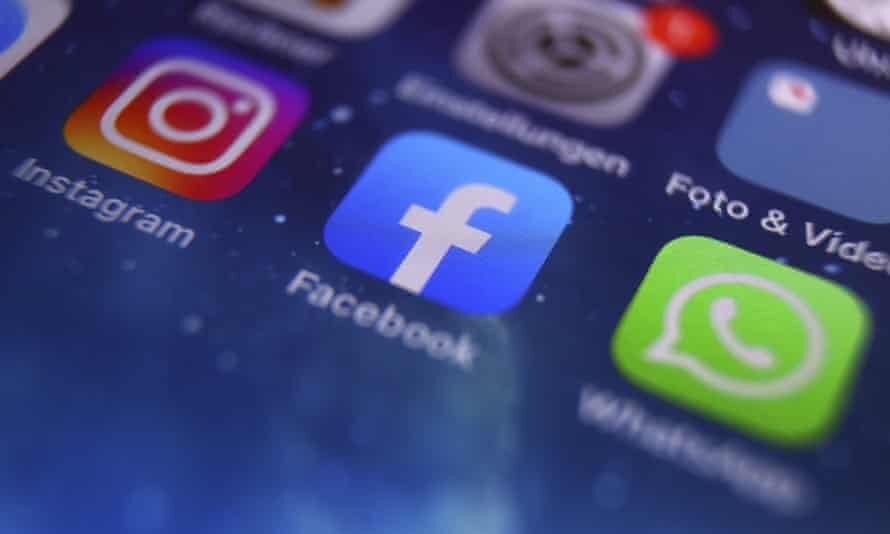Big tech controls freedom of speech

TEHRAN — On Monday afternoon, the world of Internet experienced one of the worst breakdowns in history. Let’s explore why.
When Facebook suffered an outage of about six hours on Monday, businesses suffered along with it. The platform and its Instagram and WhatsApp siblings play key roles in commerce, with some companies relying on Facebook's network instead of their own websites.
But on Monday, that network came crashing down. It wasn't a hack, Facebook said, rather a self-inflicted problem.
An update to Facebook's routers that coordinate network traffic went wrong, sending a wave of disruptions rippling through its systems. As a result, all things on Facebook were effectively shut down worldwide.
The disruption stands as one of Facebook's worst setbacks since a 2019 incident that took the platform offline for nearly 24 hours — an outage that, like Monday's, was attributed to a change in Facebook's server configuration.
This week's outage struck around 11:40 a.m. ET. At about 6:30 p.m. ET, the company announced that it had resolved the problem and was bringing services back online.
In an update on the outage, Facebook said, "Configuration changes on the backbone routers that coordinate network traffic between our data centers," blocking their ability to communicate and setting off a cascade of network failures.
That explanation suggests the problem arose between Facebook and the Border Gateway Protocol, a vital tool underlying the Internet.
Border Gateway Protocol is often compared with the GPS system or the Postal Service. Similar to ideas like map coordinates or ZIP codes, the system tells the rest of the world where to route traffic and information.
When a company can't use the gateway protocol, it's as if their online domains simply don't exist. But that didn't stop web pages, searches and messages from looking for Facebook's properties. And that, in turn, led to other problems.
"Many organizations saw network disruptions and slowness thanks to billions of devices constantly asking for the current coordinates of Facebook.com, Instagram.com and WhatsApp.com," tech expert Brian Krebs notes.
The outage came as Facebook faces intense scrutiny over its products and policies — including a whistleblower who is testifying before a Senate subcommittee on Tuesday — prompting some to wonder whether the company had been hacked. But the company said it was simply "a faulty configuration change."
Facebook also stressed that there is "no evidence that user data was compromised as a result of this downtime."
Former Facebook product manager Frances Haugen testified before the U.S. Senate on Oct. 5, 2021, that the company’s social media platforms “harm children, stoke division and weaken our democracy.”
Haugen was the primary source for a Wall Street Journal exposé on the company. Called Facebook’s algorithms dangerous, she said Facebook executives were aware of the threat but put profits before people, and called on Congress to regulate the company.
Haugen told Congress that Facebook consistently chose to maximize its growth rather than implement safeguards on its platforms, just as it hid from the public and government officials internal research that illuminated the harms of Facebook products.
"The result has been more division, more harm, more lies, more threats and more combat. In some cases, this dangerous online talk has led to actual violence that harms and even kills people," she testified.
Before Haugen left the social network, she copied thousands of pages of confidential documents and shared them with lawmakers, regulators and The Wall Street Journal, which published a series of reports called the Facebook Files.
"During my time at Facebook, I came to realize a devastating truth: Almost no one outside of Facebook knows what happens inside Facebook," Haugen told Congress. "The company intentionally hides vital information from the public, from the U.S. government, and from governments around the world."
Social media platforms rely heavily on people’s behavior to decide on the content that you see. In particular, they watch for content that people respond to or “engage” with by liking, commenting and sharing. Troll farms, organizations that spread provocative content, exploit this by copying high-engagement content and posting it as their own, which helps them reach a wide audience.
Haugen has leaked one Facebook study that found that 13.5% of UK teen girls in one survey say their suicidal thoughts became more frequent after starting on Instagram.
Another leaked study found 17% of teen girls say their eating disorders got worse after using Instagram.
About 32% of teen girls said that when they felt bad about their bodies, Instagram made them feel worse, Facebook's researchers found, which was first reported by the Journal.
Sen. Marsha Blackburn, R-Tenn., accused Facebook of intentionally targeting children under age 13 with an "addictive" product — despite the app requiring users be 13 years or older.
"It is clear that Facebook prioritizes profit over the well-being of children and all users," she said.
Facebook, and other “big tech” companies are now acting as a tool for the imperialist powers by being selective about everything, including news one must read. They decide for your taste, for your interests, and everything. A dangerous trend that might endanger human’s ability of thinking.
SA/PA
